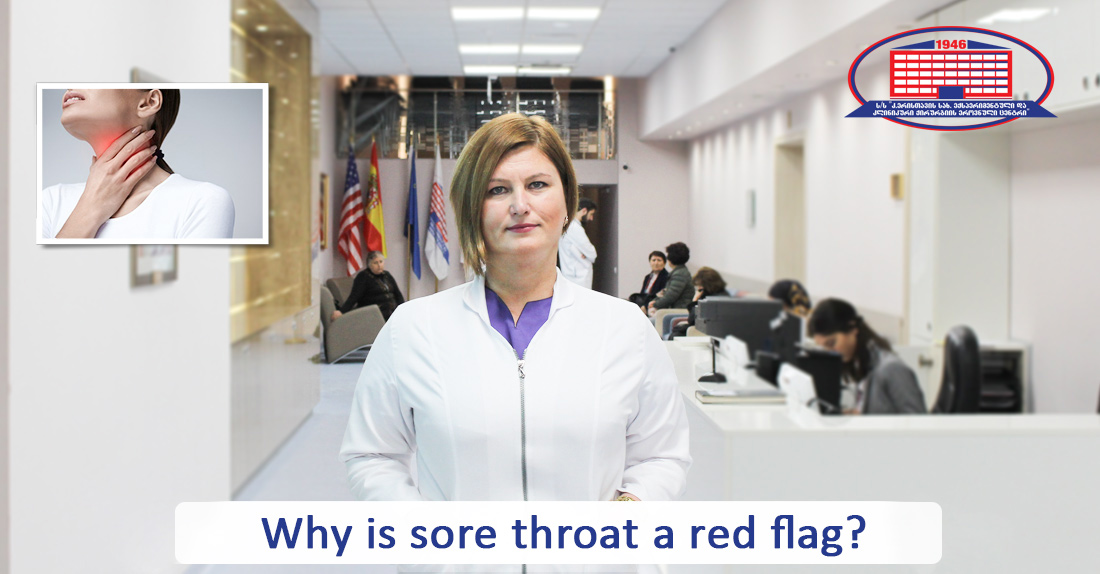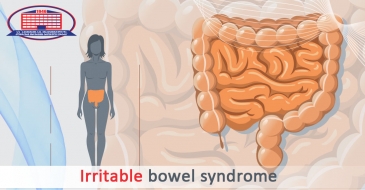
The risk of catching a common cold increases as winter approaches and temperature drops.
In the interview, you will be informed about the following:
Albeit, for many people sore throat isn’t an important symptom and commonly, they don’t see a doctor because of it.
A sore throat can be caused by a bacterial, viral or fungal infection.
The most common causes for sore throat are:
- Angina (tonsillitis) and pharyngitis caused by A group beta-hemolytic streptococci;
- Laryngeal trauma (during yelling or singing);
- Epiglottitis (acute inflammation of epiglottis);
- Peritonsillar abscess (complication caused by angina that is presented with abscess surrounding glands).
Less common causes: a foreign object in the respiratory tract, infectious mononucleosis, cancers (tongue, pharynx, larynx), enlarged thyroid gland, diphtheria, systemic disease (Kawasaki, Steven-Johnson syndrome), cough.
Of course, there are numerous medications for sore throat available at pharmacies, but it cannot replace a consultation with a respective doctor-specialist. Self-treatment with antibiotics isn’t recommended. The sore throat can be one of the symptoms of dangerous diseases and subsequently, require prompt diagnostic and proper treatment.
Oto-rhino laryngologist of National Center of Surgery, Rusudan Kontselidze discusses the topic.
– When to see a doctor, i.e. in which cases is it necessary to go to the clinic for a sore throat?
– It’s necessary to visit a doctor, when:
- Sore throat lasts more than 48 hours without other symptoms or flu;
- Sore throat is accompanied by sharp increase of temperature;
- Lymph glands of the neck are enlarged;
- Lymph nodes of neck, groin, as well as armpit are enlarged;
- Vocal timbre changes;
- Pus or plaque is visible on tonsils (glands) or back wall of the pharynx

– What symptoms can a patient suffer from with a sore throat?
– A patient can suffer from and commonly, sore throat is accompanied by general weakness, difficulty swallowing and pain when swallowing, hypersalivation (excessive salivation), difficulty breathing, vocal timbre changes, runny nose, and cough. Also, enlargement and pain in lymph nodes might be detected.
–What type of complications can the sore throat cause?
– It’s worth mentioning that the most common cause of complication is self-treatment or the fact that a patient doesn't treat a sore throat at all. Streptococcal pharyngitis and angina are especially dangerous, which might be complicated with non-purulent pathologies, for example, rheumatic fever, septic arthritis, acute glomerulonephritis. In purulent complications, we should mention bacteremia (bacteria in blood), peritonsillar abscess, mediastinitis (rare complication of abscess that develops in mediastinum), endocarditis (inflammation of lining endocardium of the heart), enlargement and inflammation of lymph nodes in neck, mastoiditis (inflammation of mastoid of temporal bone, inflammation of middle ear.
The effective prevention method of all these complications is a prompt visit to the doctor and, hence, treatment.
– How do you determine if the sore throat is dangerous or not, i.e., or what type of diagnostic studies do you offer to patients?
– First of all, the proper collection of medical history is essential. Of course, I study oropharyngeal (face- pharynx) area, examine palatine tonsils, asses the state of regional lymph nodes and based on medical indications (if necessary), I order laboratory tests, bacteriological analysis of smear (sensitivity to antibiotics), ultrasound imaging of lymph nodes for a patient.
I reach the diagnosis and appoint a respective course of treatment based on diagnostic procedure and studies
– What can you tell us about treatment methods?
– A patient undergoes individual conservative treatment. In the sore throat of viral etiology treatment is symptomatic.
In streptococcal pharyngitis and tonsillitis respective antibiotic therapy is necessary.
Also, if the desired result isn’t achieved in 48-72 hours after the administration of antibiotics, additional studies are required.
Operative treatment tonsillectomy (removal of glands) is necessary in case if a patient has frequent angina, 4-5 times a year, had a peritonsillar abscess, presents with alteration of any inner organs (especially, joints, kidney, heart). Also, if a patient has enlarged, i.e. hypertrophied tonsils that affect the ability to breathe and swallow.
If there are no such problems, it’s recommended to keep tonsils.
Wish you health!









